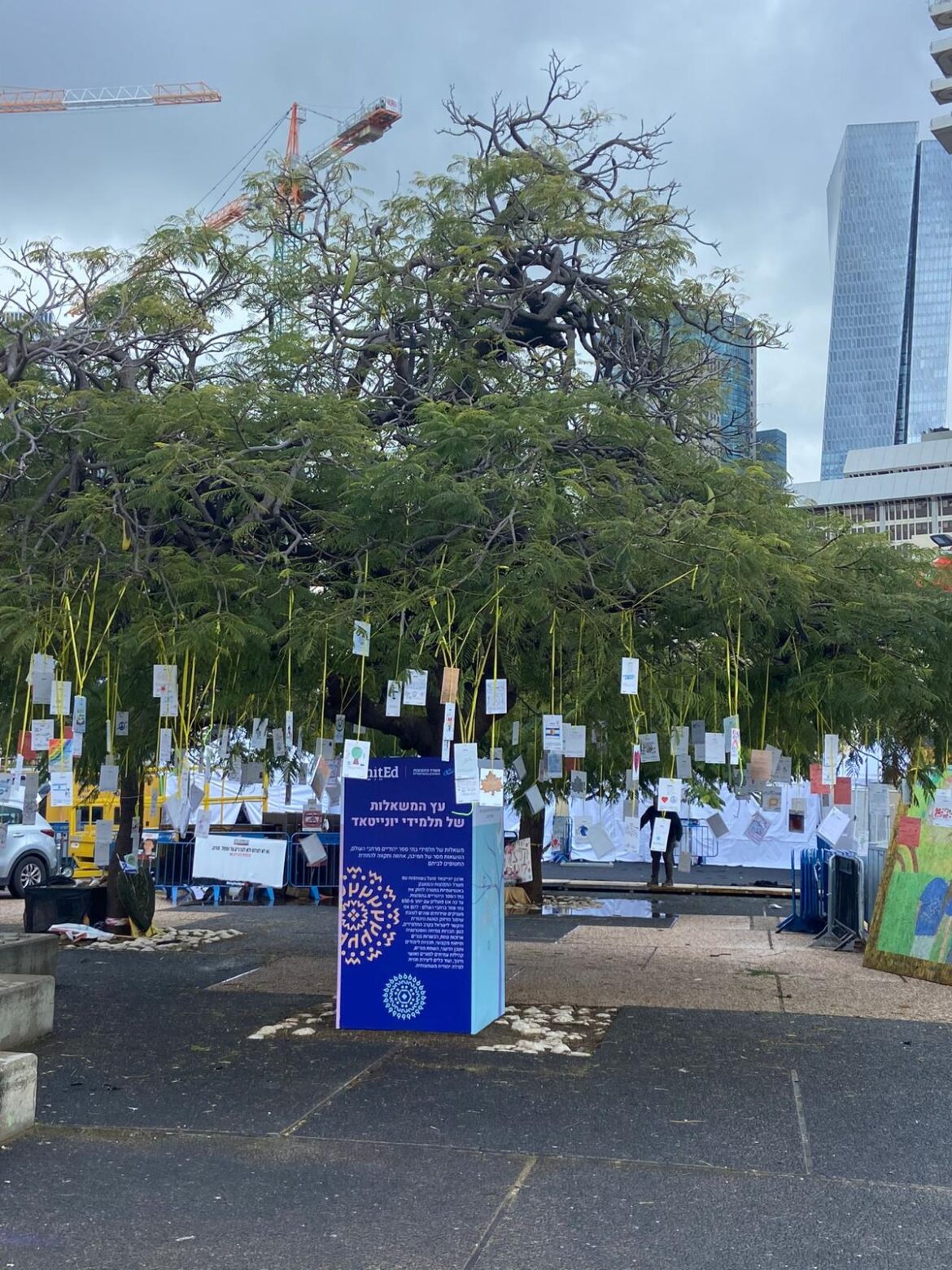“You have to build the kids’ ability to be proud of who they are,” said Hana Dorsman. “At the end of the day, that is the strongest answer to antisemitism.”
Mike Wagenheim
(JNS)
Amid a surge in Jew-hatred globally since Hamas’s Oct. 7 terror attack in southern Israel, some Jewish educational leaders also see a chance for revitalization, as many in the diaspora are connecting increasingly with their Jewish identities.
The Israeli Ministry of Diaspora Affairs and Combating Antisemitism created a program called UnitEd, which works with more than 650 Jewish day schools worldwide and develops educational materials designed to strengthen Jewish identity and young Jews’ commitment to their communities.
After Oct. 7, “we started working very fast,” Assaf Gamzu, director of education at the initiative, told JNS. “We set up a mini website, and basically what we started with was working in two vectors.”
The program began with PowerPoint presentations about Gaza and Hamas. “Really, very basic information,” Gamzu said.
Now the program includes English, French and Spanish newscasts for elementary school students, which UnitEd releases every two or three weeks about the war. The newscasts “give tools to educators and families on how to talk with younger children, who we don’t want to expose to the news,” Gamzu told JNS.
The program worked on the materials with a psychologist, who “knows how to talk about these very charged subjects with children,” he added.
Another aspect of the program, Gamzu said, is building resilience.
“Unfortunately, in Israel, we’re very experienced in how to deal in a classroom setting with very stressful and traumatic situations,” he said, though in the diaspora, “Jewish educators naturally had no experience, no idea how to deal with it.”
Understanding the complexity
Jewish days schools have long done a “great job in terms of building that love and loyalty and commitment to Israel,” Rabbi Scot Berman, director of English-speaking countries at UnitedEd, told JNS.
“We are feeling they need support in helping transmit more content, so that their students are more literate about the situation, about the history,” he said, “so that when they are confronted, they know how to speak about and understand the complexity of what’s happening.”
At first, UnitEd translated materials from NATAL, an Israeli nonprofit that aids those hurt by national security traumas, and created webinars. But UnitEd staff, many of them immigrants to Israel who have extensive experience in the diaspora, anticipated the massive antisemitic backlash to Israeli military response to Oct. 7, according to Gamzu.
“Schools feel like a fortress now,” he said. “It’s not a theoretical discussion. For the kids, they just feel hatred and that’s definitely something that has to be addressed.”
There is a need to better understand the role that Israel plays in Jewish identity for individuals and families in the diaspora, according to Gamzu.
Berman told JNS that leading educators from across the globe visited Israel shortly after Oct. 7 for “an immersive leap to serve, essentially, as a think tank.” The group also visited sites devastated on Oct. 7 and Hostages Square in Tel Aviv. The educators “soaked up what was happening,” he said.
Teachers and researchers from that trip are preparing to publish a book about the ways that Jewish education has changed since Oct. 7, Berman said. He added that UnitEd ran a program with Hostages and Missing Families Forum, in which they solicited messages of hope for families of hostages from students in the diaspora, laminated the messages and hung them on trees in Hostages Square.
“It’s provided agency to these young kids, and we saw the effect of the amount of people that come by,” Berman said. “When I talk about it, I get emotional because it’s beautiful and so artistic.”
Visitors have begun hanging their own messages on the trees. “There’s now a forest of wishes,” Berman said.
Hana Dorsman, the CEO of UnitEd, told JNS that when the nonprofit has seen a spectrum of responses from educators since the Oct. 7 terror attack.
“In the beginning, everybody was shocked and we started thinking with them, what are the most important things for Jewish kids and youth?” she told JNS.
She believes that 90% of the educators with whom UnitEd interacts have a strong Jewish identity, and that is important helping students prepare for college, where many campuses are hotbeds of antisemitic activities.
“You have to build the kids’ ability to be proud of who they are,” Dorsman said. “At the end of the day, that is the strongest answer to antisemitism.”
Image: Courtesy JNS article




 The Commander of Hezbollah’s Bint Jbeil Area, Ahmed Jafar Maatouk, was eliminated in an IAF strike.
The Commander of Hezbollah’s Bint Jbeil Area, Ahmed Jafar Maatouk, was eliminated in an IAF strike.










